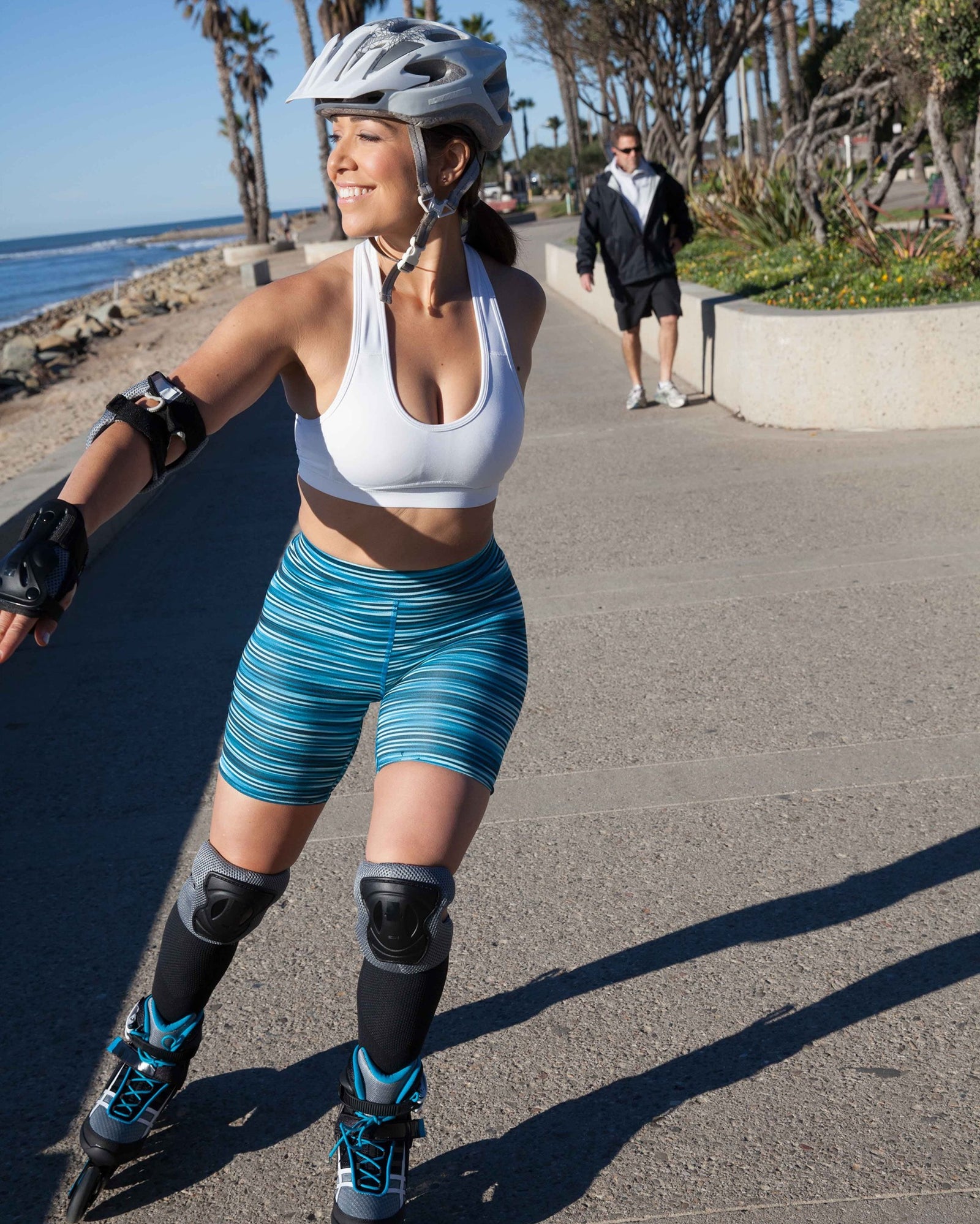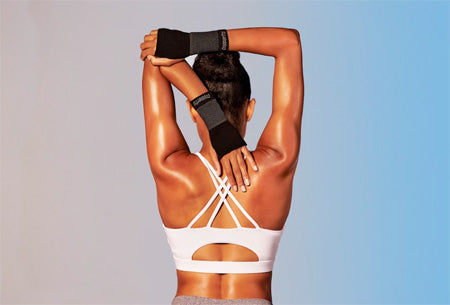
Middle age comes, and things start changing. The good news is that you can make tweaks in your workout, diet, and lifestyle that can help keep you vibrant and healthy 40+ and beyond.
Exercise over 40: Work on Gaining Muscle
Simply put, strength training not only builds muscle strength, but it’s important to preserve bone density. As we age and our bones get more brittle, this becomes increasingly important. Keeping our bodies strong ultimately means greater vitality and independence for the long haul. Muscle loss is a natural part of aging, and after age 30, you begin to lose as much as 3% to 5% per decade. For men, after the age of 30, testosterone levels start to dip, which reduces muscle mass retention. The news is worse for women, who lose muscle mass twice as fast as men. Working on building muscle should be a workout focus.
Another benefit of beefing up? The risk of developing arthritis increases with age. And with arthritis comes chronic pain - joint pain and stiffness. Strength training has been proven to help relieve the pain associated with arthritis. As stated in this study, the importance goes beyond that: “strength training also can reduce the risk of osteoporosis and the signs and symptoms of numerous chronic diseases such as heart disease, arthritis, and type 2 diabetes, while also improving sleep and reducing depression.” If you are already suffering from arthritis pain or the aches and pains of aging, try a wrist or ankle compression sleeve during your workout or for recovery. They may support improved circulation and improve the flow of freshly oxygenated blood, reducing pain, and recovery time.
What are the best strength training exercises? You don’t have to get fancy or spend time pumping iron in the gym, and you don’t even need a gym. This New York Times workout requires nothing but body weight and comprises good old squats, push-ups, mountain climbers, and planks. Try that 2-3 times a week, and you are on your way to a stronger YOU.
Nutrition over 40: Pay attention to Protein
The basics of nutrition are pretty well known by the time the 40's hit: lower sugar, lots of fruits, vegetables, nutrient-dense foods, and moderate to low alcohol intake. But did you know that protein is more important on the other side of middle age, especially after exercise? Studies also showed that the repair of muscles following strenuous exercise was slower in older athletes. They need 35 to 40 grams of high-quality protein for muscle repair compared to 20 grams for younger athletes.
Aside from exercise, protein is essential to maintain muscle mass and bone mass as you age, which is vital to avoid osteoporosis and bone fractures. The general idea: have protein with every meal. Great options are chicken, fish, lean meat, or plant-based protein like lentils, beans, or soy.
Stress over 40: Learn how to Manage It
Keeping stress in check is key to overall vitality. The connection between stress and sickness is real. To put it simply, stress decreases the body’s lymphocytes, the white blood cells that help fight off infection. The thing is, stress is a part of life for everyone. So what can we do to help our bodies manage it?
Meditation and yoga are great ways to deal with stress, but even easier than that: just take a walk.

The benefit of getting outside, moving, and taking in nature is powerful. Research has shown that walking releases endorphins that stimulate relaxation and improve our mood. It doesn’t have to be long and strenuous. Even if you struggle with pain when moving, try a compression sock for added comfort on your walks and an insole or a knee brace for added support. The important thing is to get out there and move!
Another of our favorite stress busters: phone a friend. Connecting with a valued person in your life brings stress down, and if you spend some of that time on the phone laughing, double bonus!
Sleep over 40: Make it a Priority
Sleep may be the number #1 most important thing you can do for overall health and wellness. Are you getting seven or more hours of sleep each night? That’s what your body needs to fend off sickness and be at its best should illness arise. Not only is the correlation between sleep and overall wellness, but also muscle recovery after a workout.
Sleeping is an essential time for muscle recovery through protein synthesis and human growth hormone release.
There are some simple changes to pay attention to. Ditch the alcohol and the afternoon coffee (both major sleep disruptors). Have a hard stop with Netflix every night. We all know by now that blue light screens can affect our brains and their ability to shut down and welcome sleep. Instead, find a ritual without the screen that can signal your body that it’s time to enter sleep mode. If you struggle with pain while sleeping, try a compression wrist wrap to help fend off night time pain from carpal tunnel or compression socks for leg pain.
If you are hitting middle age or well into it, it’s important to have the mindset that aging CAN be done gracefully. You have the power to make changes in your daily routine that have an impact. Pay attention to the big four: nutrition, exercise, stress, and sleep, and you are on your way!





